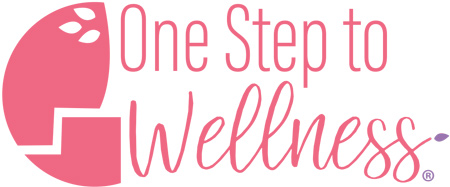I don’t mean to brag, but… I am a very experienced weight loss program attender. It’s safe to say I’ve lost the same 100 pounds 100 times in 100 different ways. Yay me!
All kidding aside, I have never been the person who takes weight off easily and keeps it off. I love food and my body loves to store food. A match made in torture-ville.
One day I was half way through an 8 week intensive (and expensive) weight loss program for the fifth time and I was really struggling to stay with the plan of eating. Each morning I would meet with a nurse, and on this day, feeling defeated and depressed I told her that I thought my issue was bigger than discipline. “I think…” I said, “there’s something inside of me that isn’t working when it comes to food. Can you help?” She sent me to the manager. I confided in the woman in charge of the outfit that I really thought something deeper was inhibiting my weight loss. Her curt reply: “We can’t help you with that, we only do food.” (Then suggested I eat less low fat cottage cheese because of the sodium. Is eating less than 1/2 cup of cottage cheese a real thing people do?)
I finished that round and never went back. It was years (and 50 pounds gained later) before I was brave enough to ask my doctor, myself and the Lord Jesus why none of my go-to weight loss plans, tricks and tips worked for me anymore. What was my real problem?
Can you relate?
How weight loss works varies from one person to another. Here are three reasons to consider if your weight loss efforts are stalling out.
Hunger
When weight loss is slow, ask yourself: are you so hungry you can’t sleep, focus or be a nice person? Base your answer on how the diet is affecting you in ways beyond a number on a scale. (Ex: emotional health, mental health and physical reactions aside from weight loss.) When considering these factors, do you think the weight loss program your are on is right for your body, mind, spirit, heart and hope?
Do you have headaches, acid reflux, brain fog, stress, anxiety and low energy when you’re on one of your go-to diets? Each person’s body responds differently to a change in food portions, quality and feeding windows. Bear in mind that there may be ways to control hunger without eating more by asking yourself the following:
-How much water am I drinking? Is it enough hydration for my body?
-What is the nutritional quality of the food I am eating? Am I getting not only a healthy amount of calories, but also a healthy amount of nutrients?
-Would quality vitamins or supplements help my body adjust to less food? Which ones does my body need?
-Am I getting enough sleep?
-Am I getting enough rest (time for peace of heart and mind?) Am I actively initiating stress reducing activities throughout my day? What would these activities look like for me?
-Am I getting enough fiber in the form of fruit and vegetables?
-Am I getting enough healthy protein?
-Am I getting enough healthy fat?
Answering these questions for yourself and testing out different ways to implement healthy life practices in addition to lowering your calories will help change the way your body feels while you are taking off some unwanted pounds.
Hidden Emotions
Emotions have an interesting way of triggering a need to eat without sounding any alarm except hunger pains and critical cravings. Many times a strong emotion, positive or negative, wiill trigger not only a desire to eat, but a desperate need to pound pizza. In other words, if we’re hit with an emotional sucker punch, we are often slammed with a subsequent hunger pang. An unwanted email, phone call or intersection alteration can ignite a need for food that’s difficult to push through.
Why? Your brain and your body know that food makes you feel better, and your body and brain want to protect you from feeling bad. So, when something negative occurs, since the solution of sugar and fat has worked to pick you up and calm you down before… your body and brain will suggest it again. You don’t have to go with that suggestion, there are other less obvious and immediate choices that work to soothe – and may actually be more effective in the long run.
You have the ability to recognize this and change the pattern. Other soothing activities that offer peace (albeit not necessarily as fun as eating a candy bar) can be employed when you recognize that the urge to eat isn’t because you lack food, but because you have been hurter want to feel good.
How to assess this? When a craving comes out of no where and you’ve eaten your healthy portions, ask yourself if anything happened in the last hour that affected your emotional wellbeing. Stop and consider the event and what you can do to address the actual emotional pain without compounding that pain with eating that will. in the long run, only make you feel worse.
When weight loss stalls, take some time to jot down activities that are fast and easy and bring you peace, that are not food related. (For example: prayer, breathing, listen to a song that boosts, call a trusted friend.)
Honesty
Being honest with ourselves is very difficult when food is involved. It’s so much easier to eat as a solution than address the challenge in our life that is motivating our excess food intake or unhealthy food behavior. A dinner isn’t just a dinner when we are also dealing with the unkind words of a spouse, teenager, or problem at work. We tell ourselves a piece of food would satisfy our sweet craving and “taste really good right now,” when what we really need is to feel the longer lasting sweetness of peace.
What is one simple step you can take to infuse the sweetness of peace into stressful situations, instead of a food substance?
When weight loss stops consider how you can keep track of what you are eating? There are many tools to track food intake. What method works for you?
Being honest with ourselves about how we are avoiding a painful life situation with eating, and tracking our food intake are two huge steps toward healing our bodies and our lives.
Julia Fikse is a Certified Functional Medicine Health Coach ©2020. Julia is not a therapist or a doctor and this blog cannot and should not in any way replace doctors advice.
Need more support? Contact me to see if personalized health coaching might be a good fit for you.

